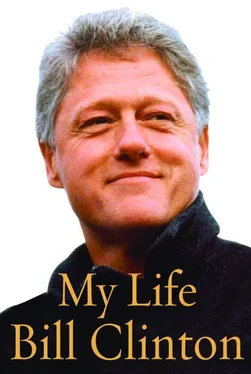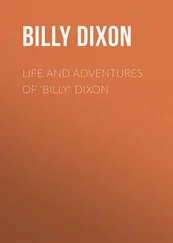Across the street from the front of our house was a collection of modest businesses. There was a small garage made of tin sheeting. David and I used to hide behind the oak tree and throw acorns against the tin to rattle the guys who worked there. Sometimes we would also try to hit the hubcaps of passing cars and, when we succeeded, it made a loud pinging noise. One day one of our targets stopped suddenly, got out of the car, saw us hiding behind a bush, and rushed up the driveway after us. After that, I didn’t lob so many acorns at cars. But it was great fun.
Next to the garage was a brick block that contained a grocery, a Laundromat, and Stubby’s, a small family-run barbeque restaurant, where I often enjoyed a meal alone, just sitting at the front table by the window, wondering about the lives of the people in the passing cars. I got my first job at thirteen in that grocery store. The owner, Dick Sanders, was already about seventy, and, like many people his age back then, he thought it was a bad thing to be left-handed, so he decided to change me, a deeply left-handed person. One day he had me stacking mayonnaise right-handed, big jars of Hellmann’s mayonnaise, which cost eighty-nine cents. I misstacked one and it fell to the floor, leaving a mess of broken glass and mayo. First I cleaned it up. Then Dick told me he’d have to dock my pay for the lost jar. I was making a dollar an hour. I got up my courage and said, “Look, Dick, you can have a good left-handed grocery boy for a dollar an hour, but you can’t have a clumsy right-handed one for free.” To my surprise, he laughed and agreed. He even let me start my first business, a used–comic-book stand in front of the store. I had carefully saved two trunkloads of comic books. They were in very good condition and sold well. At the time I was proud of myself, though I know now that if I’d saved them, they’d be valuable collectors’ items today.
Next to our house going west, toward town, was the Perry Plaza Motel. I liked the Perrys and their daughter Tavia, who was a year or two older than I. One day I was visiting her just after she’d gotten a new BB gun. I must have been nine or ten. She threw a belt on the floor and said if I stepped over it she’d shoot me. Of course, I did. And she shot me. It was a leg hit so it could have been worse, and I resolved to become a better judge of when someone’s bluffing.
I remember something else about the Perrys’ motel. It was yellow-brick—two stories high and one room wide, stretching from Park Avenue to Circle Drive. Sometimes people would rent rooms there, and at other motels and rooming houses around town, for weeks or even months at a time. Once a middle-aged man did that with the backmost room on the second floor. One day the police came and took him away. He had been performing abortions there. Until then, I don’t think I knew what an abortion was. Farther down Park Avenue was a little barbershop, where Mr. Brizendine cut my hair. About a quarter mile past the barbershop, Park Avenue runs into Ramble Street, which then led south up a hill to my new school, Ramble Elementary. In fourth grade I started band. The grade school band was composed of students from all the city’s elementary schools. The director, George Gray, had a great, encouraging way with little kids as we squawked away. I played clarinet for a year or so, then switched to tenor saxophone because the band needed one, a change I would never regret. My most vivid memory of fifth grade is a class discussion about memory in which one of my classmates, Tommy O’Neal, told our teacher, Mrs. Caristianos, he thought he could remember when he was born. I didn’t know whether he had a vivid imagination or a loose screw, but I liked him and had finally met someone with an even better memory than mine.
I adored my sixth-grade teacher, Kathleen Schaer. Like a lot of teachers of her generation, she never married and devoted her life to children. She lived into her late eighties with her cousin, who made the same choices. As gentle and kind as she was, Miss Schaer believed in tough love. The day before we had our little grade school graduation ceremony, she held me after class. She told me I should be graduating first in my class, tied with Donna Standiford. Instead, because my citizenship grades were so low—we might have been calling it “deportment” by then—I had been dropped to a tie for third. Miss Schaer said, “Billy, when you grow up you’re either going to be governor or get in a lot of trouble. It all depends on whether you learn when to talk and when to keep quiet.” Turns out she was right on both counts.
When I was at Ramble, my interest in reading grew and I discovered the Garland County Public Library, which was downtown, near the courthouse and not far from Clinton Buick Company. I would go there for hours, browsing among the books and reading lots of them. I was most fascinated by books about Native Americans and read children’s biographies of Geronimo, the great Apache; Crazy Horse, the Lakota Sioux who killed Custer and routed his troops at Little Bighorn; Chief Joseph of the Nez Percé, who made peace with his powerful statement, “From where the sun now stands, I will fight no more forever”; and the great Seminole chief Osceola, who developed a written alphabet for his people. I never lost my interest in Native Americans or my feeling that they had been terribly mistreated. My last stop on Park Avenue was my first real church, Park Place Baptist Church. Though Mother and Daddy didn’t go except on Easter and sometimes at Christmas, Mother encouraged me to go, and I did, just about every Sunday. I loved getting dressed up and walking down there. From the time I was about eleven until I graduated from high school, my teacher was A. B. “Sonny” Jeffries. His son Bert was in my class and we became close friends. Every Sunday for years, we went to Sunday school and church together, always sitting in the back, often in our own world. In 1955, I had absorbed enough of my church’s teachings to know that I was a sinner and to want Jesus to save me. So I came down the aisle at the end of Sunday service, professed my faith in Christ, and asked to be baptized. The Reverend Fitzgerald came to the house to talk to Mother and me. Baptists require an informed profession of faith for baptism; they want people to know what they are doing, as opposed to the Methodists’ infantsprinkling ritual that took Hillary and her brothers out of hell’s way. Bert Jeffries and I were baptized together, along with several other people on a Sunday night. The baptismal pool was just above the choir loft. When the curtains were opened, the congregation could see the pastor standing in a white robe, dunking the saved. Just ahead of Bert and me in the line was a woman who was visibly afraid of the water. She trembled down the steps into the pool. When the preacher held her nose and dunked her, she went completely rigid. Her right leg jerked straight up in the air and came to rest on the narrow strip of glass that protected the choir loft from splashes. Her heel stuck. She couldn’t get it off, so when the preacher tried to lift her up, he couldn’t budge her. Since he was looking at her submerged head, he didn’t see what had happened, so he just kept jerking on her. Finally he looked around, figured it out, and took the poor woman’s leg down before she drowned. Bert and I were in stitches. I couldn’t help thinking that if Jesus had this much of a sense of humor, being a Christian wasn’t going to be so tough.
Besides my new friends, neighborhood, school, and church, Hot Springs brought me a new extended family in the Clintons. My step-grandparents were Al and Eula Mae Cornwell Clinton. Poppy Al, as we all called him, came from Dardanelle, in Yell County, a beautiful wooded place seventy miles west of Little Rock up the Arkansas River. He met and married his wife there after her family migrated from Mississippi in the 1890s. We called my new grandmother Mama Clinton. She was one of a huge Cornwell family that spread out all over Arkansas. Together with the Clintons and my mother’s relatives, they gave me kinfolk in fifteen of Arkansas’ seventy-five counties, an enormous asset when I started my political career in a time when personal contacts counted more than credentials or positions on the issues.
Читать дальше












